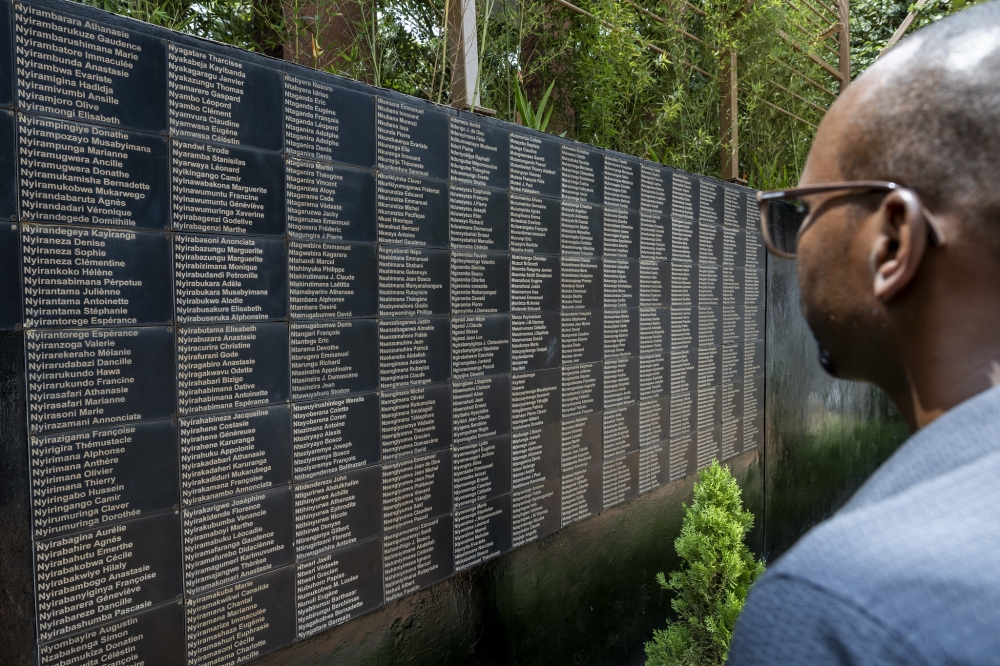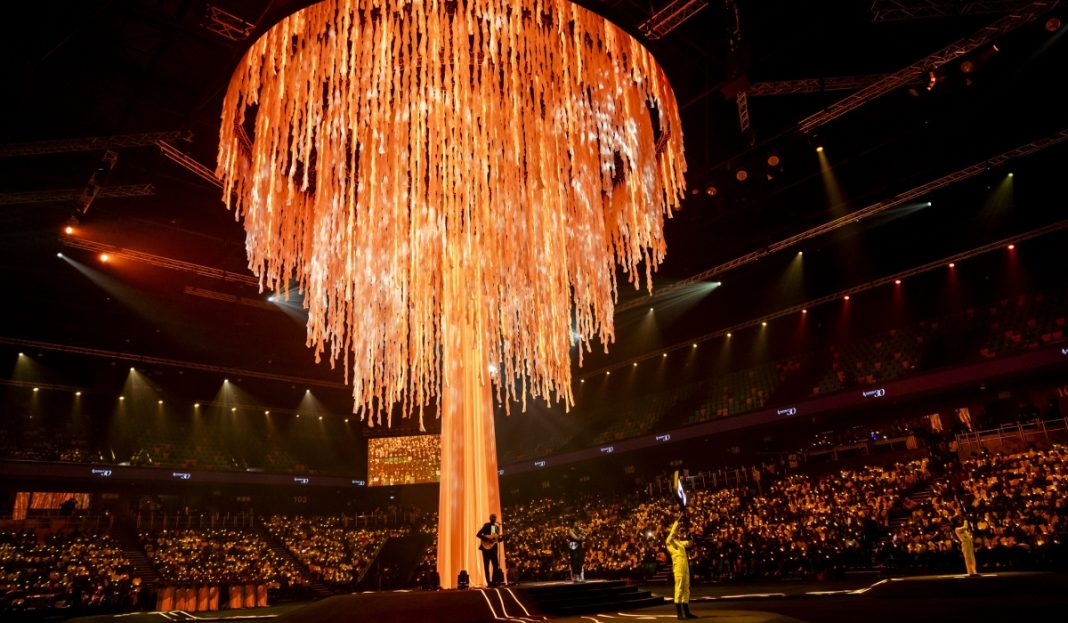Rwandans and friends of Rwanda all over the world will, from April 7 to 13, commence a week of commemoration activities to mark 31 years after the 1994 Genocide against the Tutsi.
More than a million people died in the carefully planned massacre that lasted 100 days from April to July in 1994.
The commemoration events are expected to start with a lighting of the ‘Flame of Hope’ at Kigali Genocide Memorial Centre, Gisozi by President Paul Kagame, which will burn for the 100 days.

The President is expected to lay a wreath in honor of the 250,000 victims buried at the Kigali Genocide Memorial, as well as all those who perished during the 1994 Genocide against the Tutsi. A nationwide minute of silence will follow this tribute.
During the official week of mourning, Rwanda’s national flag will fly at half-mast. Commemorative events will be held across the country and in Rwandan embassies worldwide.
In 2003, the United Nations General Assembly designated April 7 as the International Day of Reflection on the 1994 Genocide against the Tutsi in Rwanda. The resolution urges all UN member states, international organizations, and civil society groups to observe the day through activities that honor the memory of the victims.
The Kigali Genocide Memorial, where the Candle of Hope will be lit, is the final resting place for over 250,000 genocide victims. Beyond serving as a burial site, the memorial also plays a vital role in educating the public about the origins of the Genocide against the Tutsi and exploring the broader history of genocide in the 20th century.
Following the candle-lighting ceremony, participants will take part in the Walk to Remember, a powerful and emotional march that honors the victims and raises awareness about the genocide’s lasting impact. The event also serves to inspire young people to stand up against prejudice, hate, and intolerance.
“The Walk to Remember will take place on the afternoon of April 7, starting from the Parliament Buildings and ending at BK Arena,” said Minister of National Unity and Civic Engagement, Jean Damascène Bizimana. He added that a night vigil will follow, featuring messages and testimonies about the genocide.
In each of Rwanda’s 30 districts, the day will begin with ceremonies at local memorial centers or designated remembrance sites, where wreaths will be laid. At the village level, discussions organized by the Ministry of National Unity and Civic Engagement (MINUBUMWE) will take place, followed by a message of the day. These activities will conclude by midday to allow regular schedules to resume.
From April 8 to 13, commemorative events will continue nationwide, with dates and activities coordinated by relevant authorities. For example, on April 10, foreign diplomats and international organizations will attend a lecture, and youth-focused events will also be held.
On April 11, a “Walk to Remember” is scheduled in Kicukiro District, beginning at IPRC Kicukiro, followed by a remembrance evening at the Nyanza Genocide Memorial. The week concludes on April 13 with a ceremony at the Rebero Genocide Memorial to honor politicians who lost their lives for standing against the genocide.
Commemorative activities will also take place across public and private institutions from April 8 through July 3, with each institution selecting its own dates for remembrance.
Genocide commemoration amid violence against Congolese Tutsi
The commemoration of the Genocide against the Tutsi takes place amid ongoing anti-Tutsi hate speech and violence in eastern DR Congo. Bizimana said: “31 years have passed without the same International Community, once guilty of abandoning Rwanda, saying a word about the fate of the Congolese refugees who have been driven from their homes by the FDLR since July 1994.
Over 900,000 Congolese Tutsi refugees have fled their country, their land, their homes, and are living in camps in Rwanda, Uganda, and elsewhere. The crimes they have suffered are globally known but remain unpunished. Can we then say that the Genocide against the Tutsi has taught the International Community anything?”
Speaking during the international conference on Genocide on April 6, Dr. Alex Mvuka Ntung, a researcher and analyst on the Great Lakes Region, said, “What I see is a question of whether the Genocide against the Tutsi has been relocated,” warning that the situation in eastern DR Congo mirrors that of 1994.
Held under the theme “When Never Again Fails: Continuation of Genocide Ideology,” the conference brought together participants to reflect on the persistence of genocide ideology and to call for truth, justice, and coordinated global action to prevent its spread.
“We are seeing lynching and cannibalism… it’s not just the infliction of pain but a message of humiliating relatives,” says Dr. Ntung, calling it a form of epistemic injustice.
Genocide ideology, fugitives
Trivializing the Genocide against the Tutsi, genocide ideology is taking place in different countries, including those in which genocide fugitives are still roaming. Despite ongoing efforts to bring perpetrators to justice, many genocide fugitives remain at large.
According to the National Public Prosecution Authority (NPPA), since 2007, Rwanda has issued 1,147 indictments, sending them to 33 countries. A paltry 62 fugitives have been apprehended and tried. Fifty percent of these fugitives were extradited to Rwanda for trial, while the same number were tried in the countries where they were arrested.
The Democratic Republic of Congo (DR Congo) alone is home to 408 fugitives. The rest are scattered across other continents, often shielded by legal and political complexities.



